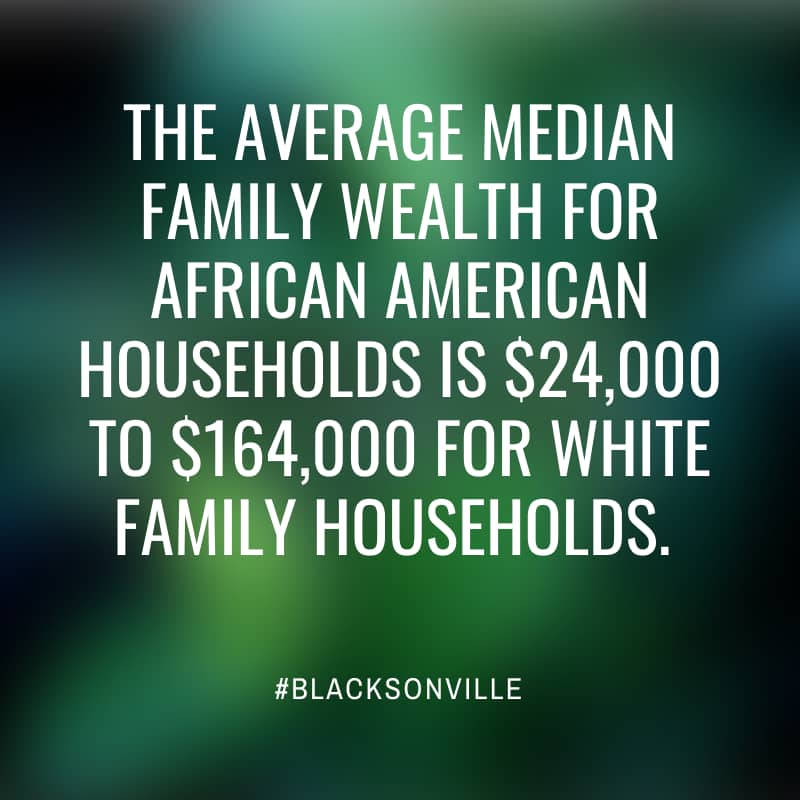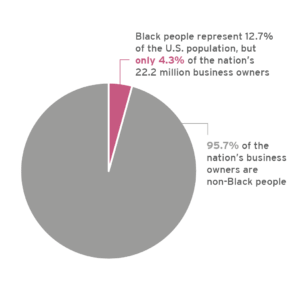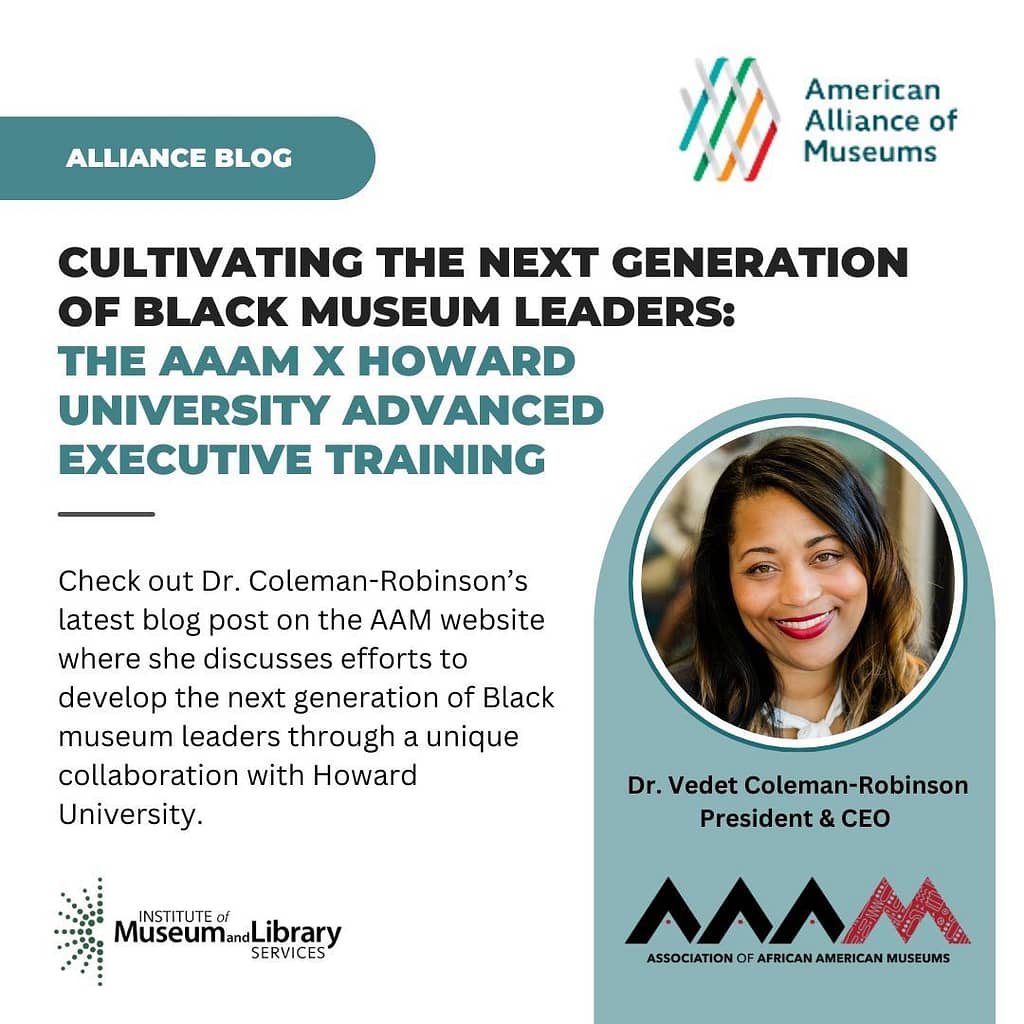
For years, Black entrepreneurs have started with less capital, on average, than their non-Black competitors and had difficulty getting financing to start or grow a business. Even today, as previously noted, they start with one-third the amount of capital, are more than twice as likely to be denied financing, and are three times more likely to say that their lack of access to capital affects profitability. In 2019, even before the pandemic, almost 30 percent of Black-owned businesses spent more than half of their revenues servicing debt.
The lack of sufficient capital makes rapid growth impossible—even when an organization is profitable. Small businesses have two primary types of capital needs. The first, working capital, is cash to support the organization’s expenses from production to sales to payment. The second, innovation and growth capital, is cash to invest in new products, strategic organizational roles, and exponential growth.
If you’re a Black business owner, it’s worthwhile to list your company on black business directory sites to help new customers discover your brand. For over a century in a half, historic economic discrimination distorted how America values Black businesses and the assets in Black neighborhoods. The data is obvious, racism continues to rob black business owners of the ability to access much needed capital, loans, and investments dollars, eliminating new business plans with the potential to lift BIPOC communities up the social ladder and build stronger neighborhoods.

Negative perceptions that are shaped by random consumer reviews and business ratings can put drags on websites that hurt Black businesses online which are judge by geolocation, and for a large part negative reviews are based on the communities they serve. While younger consumers recognize the importance of spending consciously to support entrepreneurs and minority merchants, it’s not always easy for customers to find Black-owned small businesses to patronize. However, directories and Google’s Black-owned business designation on business profile cards make them easier to identify.
Ninety percent of Gen Zers believe companies should address racial equality, according to a 2021 McKinsey study.
While the national patterns in Yelp reviews play out differently across metropolitan areas, there are practical things that cities and local governments can do to counteract the devaluation of businesses in Black communities. They should invest in city infrastructure near highly rated businesses in Black neighborhoods and provide creative financing solutions for commercial spaces in Black neighborhoods. Local governments should partner with businesses, real estate developers, and building owners to incentivize the renovation of business facades and buildings and ensure that unnecessary bureaucratic and zoning restrictions are removed.
In non-Black-majority neighborhoods, businesses with high Yelp ratings grew, on average, between 8.5% and 9% between 2016 and 2019, and poorly rated businesses grew significantly less (between 5% and 7.5%). In Black-majority neighborhoods, 7% growth was the norm for both highly rated and poorly rated businesses. Location in Black-majority neighborhoods eliminates the benefit of being a highly rated establishment.
- In the age of the inclusive consumer, harnessing the power of retail can increase demand for Black-owned brands.
- Just 4% of Black-owned businesses are still in operation after three and a half years, compared with an average of 55.5% for all businesses.
- Leading retailers are starting to act post-COVID, revealing some of the actions that other retailers can take.
 The age of the inclusive consumer is here. Nearly half (45 percent) of consumers in the United States agree that companies should pledge to support Black-owned brands, suppliers, and vendors (Exhibit 1). Sixty-eight percent say their social values shape their shopping choices. This sentiment is matched by the growing support for Black-owned brands by trendsetting publishers: nearly every leading fashion magazine, from Vogue to Teen Vogue, publishes lists of top Black brands and designers.
The age of the inclusive consumer is here. Nearly half (45 percent) of consumers in the United States agree that companies should pledge to support Black-owned brands, suppliers, and vendors (Exhibit 1). Sixty-eight percent say their social values shape their shopping choices. This sentiment is matched by the growing support for Black-owned brands by trendsetting publishers: nearly every leading fashion magazine, from Vogue to Teen Vogue, publishes lists of top Black brands and designers.
Black consumers are far more likely to say that the products and services available today do not meet their needs, particularly in the personal care, financial, healthcare, and food industries. In the beauty industry, 92 percent of Black consumers say that supporting Black-owned brands is important to their buying decisions. Black respondents also noted that they did not see themselves in marketing campaigns, and that many companies lack a commitment to social justice. Survey results indicate that Black consumers are willing to shift about $260 billion of their annual spending to companies that better meet their needs.Too often, these and other barriers lead to shortfalls: just 4 percent of Black-owned businesses are still in operation after three and a half years, compared with an average of 55.5 percent for all businesses. Of the “unicorns” that have emerged in the last decade, less than 2 percent have Black founders (Exhibit 2). The last decade saw only two Black-founded unicorns in consumer retail—Pat McGrath Labs and Savage X Fenty—both brands riding the tailwinds of celebrity.




